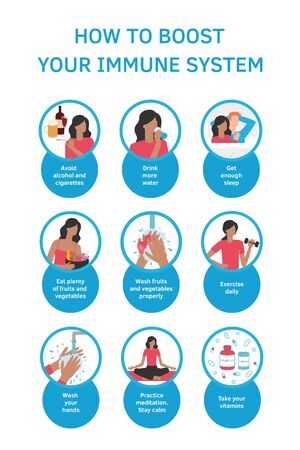Understanding the NHS Approach to Preventative Health
The National Health Service (NHS) stands as a cornerstone of British society, renowned not only for its treatment services but also for its dedication to preventative healthcare, especially for older adults. In recent years, the NHS has increasingly focused on proactive strategies that aim to reduce the onset of chronic conditions and promote longevity among the ageing population. This commitment is reflected in a holistic approach that recognises the interconnectedness of body and mind—a principle resonant with traditional wisdom about harmony and balance in health.
The NHS implements a range of initiatives designed to prevent illness before it arises, such as regular health screenings, vaccination programmes, and lifestyle advice tailored to the unique needs of older people. These strategies are embedded within broader UK public health policies, which prioritise early intervention and community-based support to maintain independence and wellbeing in later life. By fostering a culture of prevention rather than cure, the NHS aligns itself with both modern evidence-based practices and age-old insights into nurturing vitality over the long term.
Holistic and Personalised Care for Ageing Populations
In the United Kingdom, the NHS recognises that supporting older adults goes far beyond simply treating physical ailments; it requires a holistic and personalised approach that addresses the whole person. This philosophy echoes the ancient wisdom of traditional medicine, where body, mind, and spirit are viewed as interdependent. The NHS integrates this perspective by designing care pathways that balance physical, emotional, and social wellbeing—fundamental elements in promoting health and longevity in later life.
One of the key strategies is the implementation of personalised care plans. These plans are co-created between healthcare professionals and patients, reflecting individual preferences, values, and unique health needs. By acknowledging not only medical histories but also lifestyle factors and emotional resilience, the NHS empowers older adults to take an active role in their own wellbeing. This shift towards person-centred care enhances trust and engagement, which are crucial in preventative health management.
The holistic approach within the NHS extends to multidisciplinary collaboration. GPs, nurses, physiotherapists, occupational therapists, mental health professionals, and social workers work together to ensure a rounded support system. This integrative model helps identify subtle changes in an older adult’s condition early on—addressing issues before they escalate into more serious problems. Such attentiveness resonates with the principle of “treating illness before it manifests,” a cornerstone in both modern preventative medicine and classical approaches.
To illustrate how the NHS balances different aspects of wellbeing for ageing populations, consider the table below:
| Aspect of Wellbeing | NHS Initiatives | Benefits for Older Adults |
|---|---|---|
| Physical Health | Annual health checks, vaccination programmes, tailored exercise prescriptions | Early detection of chronic conditions, reduced risk of falls, improved mobility |
| Emotional Wellbeing | Mental health support services, social prescribing, community engagement activities | Reduced loneliness and depression, increased sense of belonging |
| Social Wellbeing | Support groups, volunteering opportunities, befriending schemes | Enhanced social networks, better quality of life |
This comprehensive model aligns with both modern scientific evidence and time-honoured principles: when physical vitality is harmonised with emotional stability and strong social connections, older adults are more likely to enjoy longer and more fulfilling lives. The NHS’s commitment to holistic and personalised care ensures that every individual receives support tailored not just to their age or diagnosis—but to their unique journey through later life.

3. Community-Based Initiatives and Support
The NHS recognises that preventative health for older adults extends far beyond clinical settings; it is deeply rooted in the vibrancy and strength of local communities. Across the UK, there has been a growing emphasis on community-based programmes that champion holistic wellbeing, drawing inspiration from both modern public health strategies and time-honoured principles of balance, connection, and purposeful living.
One shining example can be seen in NHS partnerships with local councils, charities, and voluntary organisations to deliver outreach activities tailored specifically for older adults. These initiatives often include walking groups in local parks, gentle tai chi or yoga sessions—reflecting a mindful approach reminiscent of traditional medicine’s focus on movement and breath—as well as nutritional workshops based on seasonal British produce. By inviting older individuals to participate in these accessible activities, such programmes nurture not only physical vitality but also mental clarity and emotional resilience.
Equally important are social prescribing schemes, where GPs and nurses refer older patients to non-clinical services within their neighbourhoods. Whether joining an art class at the village hall or volunteering in a community garden, these opportunities help foster a sense of belonging—a vital tonic for combating isolation. This aligns with the age-old wisdom that harmonious relationships and active engagement are key ingredients for longevity and happiness.
Importantly, these efforts are not delivered in isolation. The NHS actively seeks collaboration with faith groups, cultural associations, and even local businesses to ensure that health-promoting opportunities reflect the rich tapestry of British society. Such partnerships help overcome barriers of access and cultural difference, ensuring every older adult feels welcomed and valued.
Through these community-rooted approaches, the NHS demonstrates its commitment to whole-person care. By weaving together medical guidance with social connection and mindful activity, these initiatives cultivate an environment where older adults can thrive—honouring both scientific evidence and the ancient belief in nurturing body, mind, and spirit as one.
4. Empowering Older Adults Through Education and Self-Management
The NHS recognises that empowering older adults is key to sustaining long-term health and wellbeing. By offering accessible health education and tailored resources, the NHS helps individuals make informed choices, fostering both self-awareness and a sense of agency. This approach echoes holistic traditions, such as those found in Chinese medicine, which value the balance of body and mind through personal responsibility and knowledge.
Accessible Health Education Programmes
Across the UK, the NHS delivers a variety of educational initiatives specifically designed for older adults. These range from group workshops on nutrition and gentle exercise to one-to-one guidance on managing chronic conditions like hypertension or diabetes. By making information clear and relevant to daily life, the NHS breaks down barriers that might otherwise discourage engagement. The table below highlights some common educational offerings:
| Programme | Description | Benefit for Older Adults |
|---|---|---|
| Healthy Ageing Workshops | Practical sessions on diet, movement, sleep, and stress management | Promotes holistic wellbeing and reduces risk of frailty |
| Digital Literacy Training | Guidance on using online health services and digital tools | Improves access to information and remote care options |
| Self-Management Courses (e.g., Expert Patients Programme) | Peer-led groups teaching self-care strategies for long-term conditions | Increases confidence in managing health independently |
Fostering Empowerment and Self-Care Culture
The NHS’s commitment extends beyond information provision—it actively nurtures an environment where older adults feel encouraged to take part in their own care. Personalised support plans, shared decision-making with GPs, and community-based peer groups all help cultivate a sense of ownership over health. This is much like the Eastern principle of “養生” (yangsheng), which champions daily practices for lifelong harmony between body, mind, and environment.
The Impact of Empowerment on Preventative Health
When older adults are empowered with knowledge and practical skills, they are better equipped to prevent illness, manage stress, and maintain independence. The NHS’s role in this journey is invaluable—offering not only clinical expertise but also the cultural sensitivity needed to reach diverse communities across Britain. In this way, preventative health becomes a shared endeavour, rooted in respect for each individual’s unique journey towards longevity.
5. Integrating Traditional and Modern Approaches
Within the evolving landscape of NHS services for older adults, there is a growing recognition of the value in blending evidence-based medical interventions with time-honoured wellbeing practices. This integration reflects an understanding that true health extends beyond the mere absence of disease, embracing the holistic harmony between body and mind—a perspective deeply rooted in traditional philosophies. The NHS has started to explore partnerships with community organisations and complementary practitioners, offering gentle movement therapies like Tai Chi or yoga, alongside mindfulness programmes and nutritional guidance inspired by both Western science and Eastern wisdom. Such approaches not only help manage chronic conditions but also foster resilience, emotional balance, and a renewed sense of purpose in later life. By respecting the unique needs and cultural backgrounds of Britain’s ageing population, these initiatives encourage individuals to become active participants in their own longevity journey. As we reflect on this emerging synergy, it becomes clear that integrating traditional and modern approaches within NHS frameworks is not merely about adding new services—it is about cultivating a more compassionate, patient-centred system where preventative health thrives through the balanced nourishment of both body and spirit.
6. Challenges, Opportunities, and Future Directions
The NHS has made significant strides in promoting preventative health and longevity among older adults, yet several challenges remain.
Addressing Barriers to Preventative Care
Access to preventative care can be hindered by factors such as socioeconomic disparities, limited health literacy, and cultural differences in health beliefs. Many older adults face obstacles like transportation issues or digital exclusion that prevent them from fully engaging with NHS services. In addition, the prevailing focus on acute care often overshadows prevention, making it crucial for the NHS to prioritise early intervention and personalised guidance rooted in holistic wellbeing.
Opportunities for Innovation
There is a growing opportunity to harness technology and community partnerships to enhance preventative care. Digital health platforms, remote monitoring, and telehealth can bridge gaps for those with mobility or geographical limitations. The integration of traditional wisdom—such as lifestyle recommendations inspired by mind-body harmony—can complement clinical practice, offering a more balanced approach to ageing well. Furthermore, collaboration with local councils, voluntary organisations, and public health initiatives can foster a supportive environment where older adults are empowered to take proactive steps toward their own health.
Future Strategies for NHS Involvement
Looking ahead, the NHS should continue developing tailored strategies that address both individual and societal determinants of healthy ageing. This includes expanding outreach in underserved communities, investing in culturally sensitive education programmes, and supporting research into innovative models of care. By weaving together modern medical advances with time-honoured principles of balance—such as stress reduction, proper nutrition, gentle exercise, and mental wellbeing—the NHS can lead the way in creating a future where longevity is matched by quality of life. Ultimately, fostering a system that values prevention as much as cure will not only benefit older adults but also ensure the sustainability of healthcare for generations to come.


